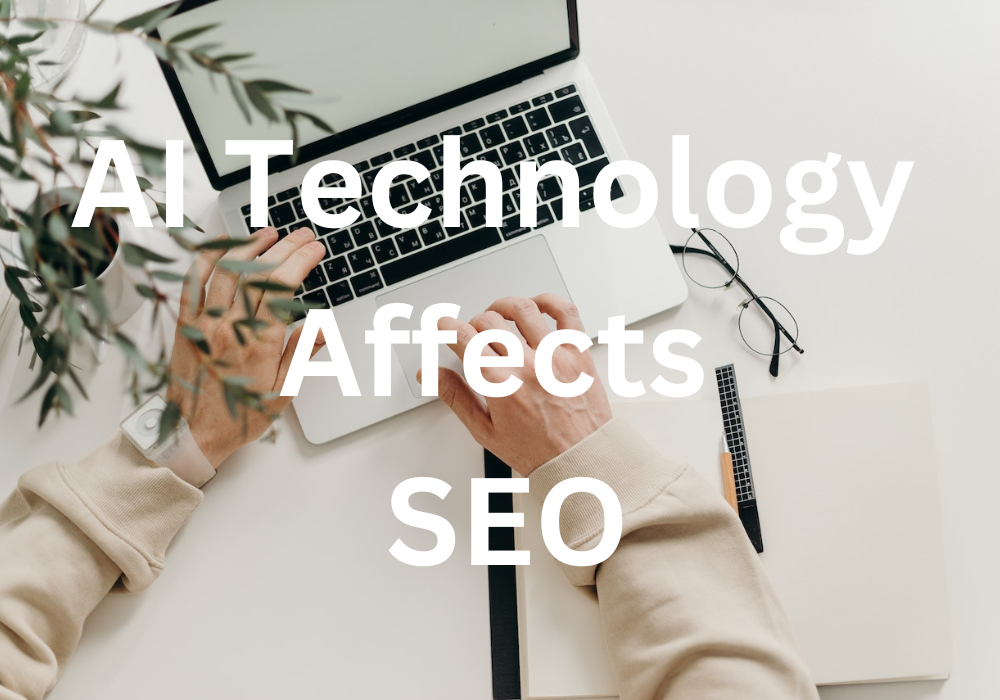As technology continues to evolve, search engine optimization (SEO) strategies remain an essential element for businesses to increase their online visibility. However, the rise of artificial intelligence (AI) technology has revolutionized the way SEO operates.
What is SEO?
SEO is an effective practice of attracting more organic traffic from search engines to your website by improving its ranking on search engine results pages (SERPs). For instance, if you are a travel agency, then higher rankings in Google search results for “best travel destinations” or “budget-friendly vacations” would increase the chances of users visiting your website and becoming potential customers.
SEO involves two main categories- Off-page SEO and On-page SEO. On-page SEO optimization includes working within the content, website structure, internal linking, meta tags and titles, and image optimization while Off-page SEO relates to external factors towards your website, incl. quality and quantity of links pointing to your pages, social media engagement, and overall brand reputation.
How AI Technology is Changing SEO
AI technology is playing an increasingly central role in SEO, making the process faster, more efficient, and more personalized. Here are some ways in which AI is changing SEO:
1. Voice Search Optimization
Voice search optimization is the new buzzword among marketers as a growing number of people are using virtual assistants such as Siri, Alexa, or Google Assistant. AI-powered voice search essentially involves optimizing your website content for voice search keywords and conversational phrases. This can be done by using long-tail key phrases that sound more like everyday speech patterns and less like robotic-sounding text.
2. Natural Language Processing
As search engines have evolved their algorithms with AI, they are getting better at properly interpreting and understanding the true intent of user queries and thus showing more accurate and relevant results. AI-enabled natural language processing (NLP) plays a crucial role in this process as it recognizes and analyses patterns in human languages, such as sentiment, context, tone, and topic modeling. This helps to deliver more accurate results for search queries than ever before.
3. Predictive Search
The predictive search takes the idea of “search suggestions” to the next level by using AI algorithms to interpret previous searches made by users and predict what they will search for next. Predictive search suggestions can be taken advantage of by incorporating popular long-tail keywords and phrases into relevant content, leading to an increase in ranking and organic traffic.
4. Image and Video Recognition
Search engine algorithms are increasingly becoming better at recognizing images, videos, and other forms of media. AI technology can analyze image patterns and use them for image and video recognition. This makes it easier for search engines to categorize and rank your website accurately by adding relevant alt tags and descriptions to the images.
5. Local SEO
With the rise of voice search technology, it’s becoming more important to focus on local SEO. AI-enabled algorithms can denote geographical locations and provide more accurate, localized search results. By incorporating Google My Business optimization, location pages, and accurate mentions of geographically-specific information, businesses can capitalize on local search algorithms.
The Impact of AI on SEO
Artificial intelligence, with the help of machine learning and data sets, increases SEO effectiveness in many ways, such as:
- Enhancing keyword research in the Era of natural language processing
- improving content relevance with machine learning
- Helping to improve user experiences and personalization, tailor-made recommendations, and personalized search results
- Reduces time spent on manual SEO tasks, freeing up time and resources for other important areas.
Conclusion
AI technology has influenced search engines in significant ways and is transforming the way SEO is practiced in the digital market. With a growing number of internet users opting for voice search, more natural language processing, predictive search algorithms, AI-powered image and video recognition, and better local SEO, it’s becoming imperative for businesses to adopt AI-powered SEO strategies. By incorporating these techniques, businesses can improve their online visibility, reach and strengthen their audiences, increase traffic and sales, and positively impact the bottom line of their businesses.
So, adopting AI technology in its early stages will benefit businesses to stay ahead in the game.

